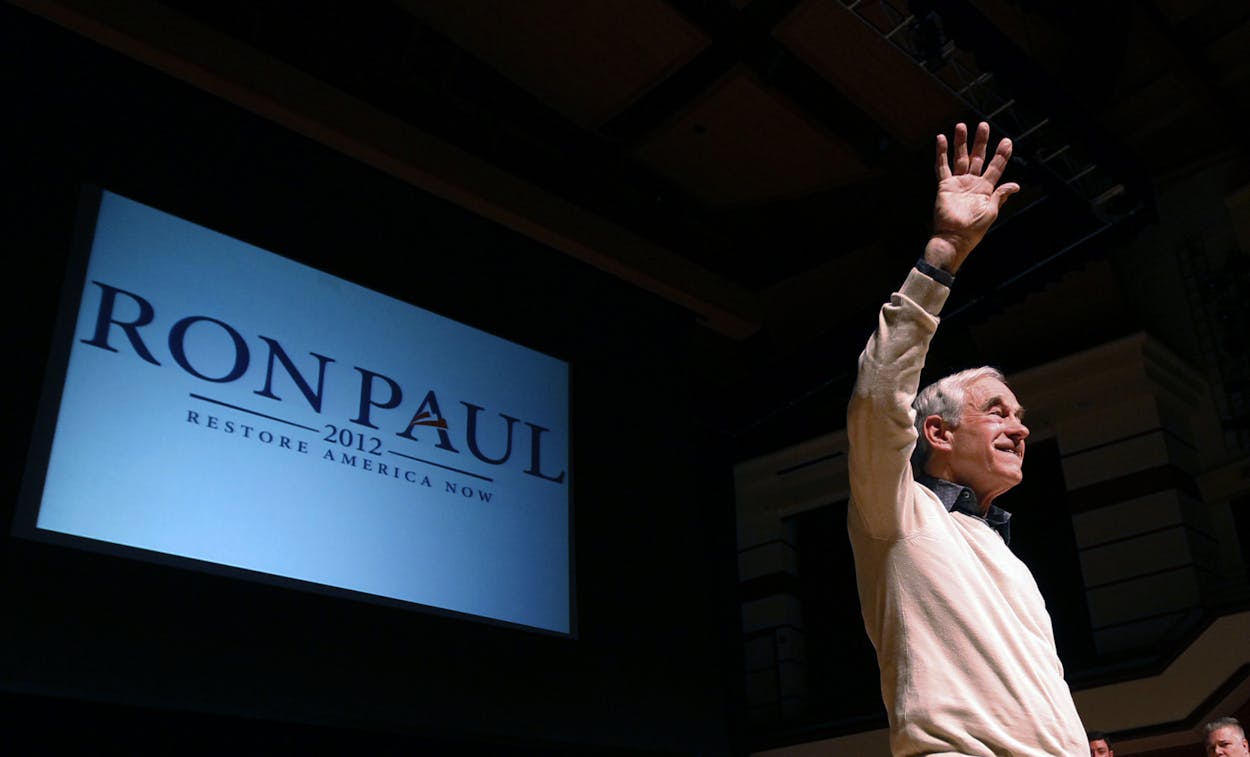Ron Paul basically skipped campaigning in Florida so he could focus most of his efforts on the delegate-rich Republican presidential caucus in Nevada. Paul ended up finishing third with nineteen percent, behind Newt Gingrich (21 percent) and presumptive nominee Mitt Romney (fifty percent).
Does this mean his strategy was a failure? At 10:42 p.m. on Saturday, the night of the caucus, Richard Oppel Jr. of the New York Times didn’t seem to think so, writing that Paul’s “big gamble on Nevada appears to have paid off: he was running neck and neck with Newt Gingrich in Nevada’s caucuses on Saturday, outpacing both the expectations of pollsters and his own performance here four years ago.”
But two hours later, Maggie Haberman of Politico‘s quick analysis was this:
No one expected Paul to win Nevada. But battling so closely with Gingrich, who had virtually no Nevada operation to speak of, was one of the surprises of the night . . . if his delegate-slog plan is to work, and have the long-haul impact he is hoping for, he will have to do better in the next round. And at some point, as a movement candidate, he is going to need to win a state.
Haberman’s Politico colleague James Hohmann concluded the next day that it was “an underwhelming outcome for a candidate whose strategy is predicated on running well in caucus states like Nevada.”
Paul’s nineteen percent was five points better than he finished in Nevada in 2008, but the headlines still say that he finished third this time and second last time. As Hohmann also observed, Paul, who carried one county out of seventeen in 2008, improved that figure to a whopping two this time.
John Avnon’s article at the Daily Beast claimed “the story in Nevada was the libertarian’s ‘tireless minority,'” but despite devoting some space to Paul’s delegate-acquisition strategy, Avnon ultimately concluded that Romney is “an electoral juggernaut that increases strength with every win.”
And Michael Finnegan of the Los Angeles Times, writing about Paul’s Sunday morning interview with ABC News’ George Stephanopolous, said the Nevada caucus “exposed the limits of [Paul]’s appeal to Republicans.”
As Finnegan noted, Paul himself is still not talking about winning, just getting some delegates: “The first thing you want to achieve is get as many votes as you can and get as many delegates and set your target high,” Paul said in the ABC interview. “And, of course, you set it for victory, but you have to live within the real world.”
Politico‘s Hohmann got a quote from Tom Simon, a 39-year-old unemployed file clerk and Paul supporter in Nevada, that encapsulates both the Lake Jackson Congressman’s appeal and his eternal outsider status: “I feel like its fruitless because it’s the person who has the most money that’s probably going to win. It’s a fixed game. It’s rigged. But besides what — pick up a weapon? — what am I going to do? This is the only thing I can do — vote and speak my mind. Based on what I saw, people are totally asleep.”
Paul’s quest for delegates continue, with his efforts now focused on Maine and Minnesota.
- More About:
- Politics & Policy
- Ron Paul
- Mitt Romney







